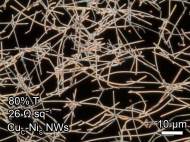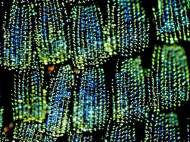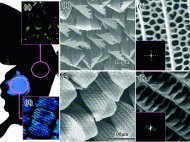Creating biofuel from wrapping paper and greeting cards
 Researchers from Imperial College London did some interesting math related to holiday season and their research in which they process paper to create biofuel. According to them, you could run one of the iconic double-decker buses to the moon and back more than 20 times if you fermented the discarded wrapping paper and Christmas cards being used in the UK alone.
Researchers from Imperial College London did some interesting math related to holiday season and their research in which they process paper to create biofuel. According to them, you could run one of the iconic double-decker buses to the moon and back more than 20 times if you fermented the discarded wrapping paper and Christmas cards being used in the UK alone.
Some estimates say that there are 1.5 billion cards and 83 square kilometers (20,510 acres) of wrapping paper are thrown away by UK residents over the Christmas period, and that paper ends up at landfills where it is recycled in local schemes. The researchers fermented different types of paper and cardboard in the laboratory to investigate how chemically and economically feasible it is to turn them into ethanol fuel.
“If one card is assumed to weigh 20g and one square meter of wrapping paper is 10g, then around 38,300 tones of extra paper waste will be generated at Christmas time”, said Dr Richard Murphy from the Department of Life Sciences at Imperial College London. “Our research shows that it would be feasible to build waste paper-to-biofuel processing plants that give energy back as transport fuel.”
After some math, the researchers envision that their process could convert that paper into 5 to 12 million liters (1.32 to 3.17 million gallons) of biofuel. They rely on a well-tested fermentation method and a novel cocktail of efficient and low-cost chemical enzymes, to create high grade ethanol. Once created, ethanol can be blended with fossil-based petrol in order to create a fuel with lower greenhouse gas balance compared to conventional petrol for cars and vans. It could be used to power large diesel vehicles as well, but their engines need to be modified to run onto biofuel.
“The fermentation process could even cope with festive paper and card which has been ‘contaminated’ with the likes of glitter and sellotape. The cellulose molecules in sellotape would be broken down into glucose sugars and then fermented into ethanol fuel, just like the paper itself. Insoluble items like glitter are easy to filter out as part of the process”, said Lei Wang, PhD student at the Imperial’s Department of Life Sciences.
The Imperial College London researchers are now analyzing the environmental performance of bioethanol made from waste paper using life cycle assessment and comparing it with the conventional transport fuel petrol.
“People should not stop recycling their discarded paper and Christmas cards because at the moment there is no better solution. However, if this technology can be developed further, waste paper might ultimately provide a great, environmentally friendly alternative to fossil fuels. There’s more work to do to assess the effectiveness and benefits of the technology, but we think it has significant potential”, Murphy added.
For more information, read the article published in the journal Energy and Environmental Science named: “Technology performance and economic feasibility of bioethanol production from various waste papers”.









Why printing GREETING CARDS and making BIOFUEL! I stopped printing Greeting Cards or purchasing them since long. I send Thousands of Greetings by E-mail. Conserve paper. Conserve Trees.
Dr.A.Jagadeesh Nellore (AP),India
E-mail: anumakonda.jagadeesh@gmail.com